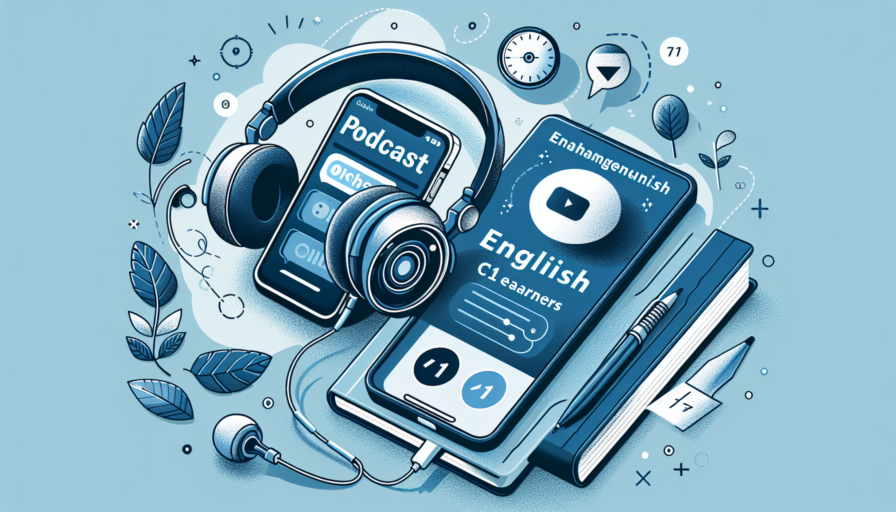
Contents
At Britannia School, we recognize that podcasts offer a unique and immersive experience that aligns perfectly with the needs of C1 learners aiming to enhance their listening skills. The dynamic format of podcasts not only piques interest but also provides exposure to diverse accents, dialects, and speaking speeds, which are crucial for advanced learners. With a plethora of topics available, we can choose content that resonates with our interests, making the learning process both enjoyable and effective.
One of the primary advantages of using podcasts is the opportunity for repeated listening. Unlike traditional classroom settings, we can pause, rewind, and replay specific segments to deepen our understanding. This ability allows us to focus on difficult phrases or unfamiliar vocabulary, leading to improved comprehension. Moreover, as we engage with native speakers in a more informal setting, we develop a more natural listening rhythm that is essential for mastering the language.
Furthermore, podcasts facilitate active listening, an essential skill for C1 learners. By practicing with interactive elements such as taking notes or summarizing episodes, we reinforce our understanding and retention. This practice helps us to become more attentive listeners, which is a vital component in effective communication. In addition, we can explore various genres of podcasts—from educational to storytelling—which offer rich contexts and examples that enhance our language acquisition.
Ultimately, incorporating podcasts into our study routines at Britannia School not only makes learning engaging but also equips us with the skills necessary to excel in real-world conversations. With consistent practice, we become confident listeners, ready to tackle any verbal challenges that come our way.
As we embark on our journey to enhance our English skills at a C1 level, we can greatly benefit from incorporating engaging tools into our study routine. One of the most effective methods is listening to podcasts. They not only provide exposure to natural language use, but also help us grasp complex structures and varied vocabulary. This guide features some of the top podcasts recommended for C1 English learners. Each selection offers a unique blend of entertainment and education.
Incorporating these top podcasts for C1 English learners into our daily routines can significantly enhance our listening skills and comprehension. By engaging with various formats and themes, we develop a deeper understanding of language, culture, and ideas from around the world. Let’s embrace the power of these auditory resources to further our mastery of English.
In our quest to enhance our knowledge, we can embrace various techniques to maximize our learning experience while listening to podcasts. Podcasts serve as a dynamic medium for acquiring information, and how we engage with them can significantly influence our retention and understanding. Here are some effective methods we can adopt:
Furthermore, we can tailor our learning experience while listening to podcasts by selecting specific genres or subjects that align with our learning goals. By curating our podcast playlist thoughtfully, we can immerse ourselves in topics that genuinely excite us, making the learning process enjoyable and fulfilling. Experimenting with different podcast formats, such as interviews, storytelling, or instructional content, will also enhance our understanding and engagement.
Lastly, we should not underestimate the power of community. Joining discussions, either online or offline, about our favorite podcasts can open new pathways of understanding and insight. Sharing thoughts and engaging with others who share our interests can further enrich our learning experience while listening to podcasts.
At Britannia School, we recognize the importance of leveraging diverse media to enhance learning. Podcasts are a powerful tool that can significantly aid in developing advanced listening proficiency. Here are some key features that make podcasts an effective medium for improving our listening skills:
By incorporating these features into our listening practice, we can actively enhance our advanced listening proficiency through podcasts. Embracing this enriching form of media not only aids in skill development but also makes learning a more enjoyable experience for all of us at Britannia School.
Creating a personalized podcast listening plan for C1 English learners involves understanding the unique goals and preferences of individuals at this advanced level. First, we should consider the specific language skills we aim to enhance, such as vocabulary acquisition, listening comprehension, and pronunciation. By doing so, we can tailor our plan to maximize the benefits of each podcast episode.
Next, we can curate a list of topics that resonate with our interests and professional goals. Here are some steps we can follow:
Lastly, we can integrate effective listening strategies to improve our understanding and retain new vocabulary. For example, we might consider:
By systematically implementing these strategies, we can create a robust personalized podcast listening plan that effectively supports our journey as C1 English learners, enabling us to achieve our linguistic goals with confidence.